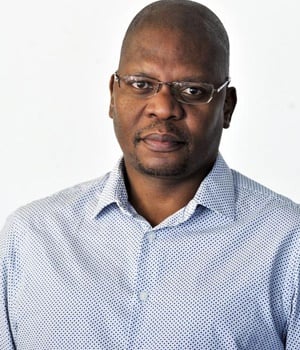
Another day. Another commission. Another committee. Another task team. Another panel. That is the story of governance in present-day South Africa.
Last week saw the institution of yet another of these bodies. The latest, a stellar 17-member panel to be headed by former deputy president Kgalema Motlanthe, will review the effect of post-1994 legislation on the South African citizenry.
It includes luminaries such as former Reserve Bank governor Tito Mboweni, FirstRand co-founder Paul Harris, Human Sciences Research Council head Olive Shisana and erstwhile Auditor-General Terence Nombembe. The only people missing from this veritable A-Team are Superman, Batman and Wonder Woman.
National Assembly Speaker Baleka Mbete almost made sense when giving her motivation for setting up the panel: “It’s all very well to pass laws, but the point is what is the impact on people’s lives? That is the issue we hope to have more insight into through the work of the panel.”
She explained that despite the country having transformatory legislation and structures, inequality remained a huge problem.
“Has it [transformation] worked?” she asked before answering. “The evidence tells us no, if you listen to South Africans. So why has it not worked? That is what we will look into.”
On the face of it, you might agree this is the sort of work that needs to be done. If laws meant to improve the lives of people are not doing so adequately then something is wrong. It means either the laws are ineffective or wrong; have not been backed up with resources, manpower and skills; or the individuals who are supposed to implement them are the wrong people.
But where it becomes puzzling is that, other than passing laws and providing oversight over governance, budgets and expenditure, the work of Parliament is to see to it that the state bureaucracy does its job. It is meant to see to it that each rand the finance minister allocates to departments, provinces, municipalities and state entities achieves the desired result. Parliament is supposed to make sure that the laws it passes, often after exhaustive and costly processes, are not merely academic.
The Constitution is clear that Parliament has the power “to ensure that all executive organs of state in the national sphere of government are accountable to it” and to maintain oversight over “the exercise of national executive authority, including the implementation of legislation”.
In addition to the work done in the chambers of Parliament, MPs also have well-funded constituency offices to which their parties allocate funding. From these offices, they are supposed to monitor on-the-ground developments and be a port of call for citizens who are being failed by arms of government. They are supposed to interact with ordinary people and organisations that are active in communities.
The National Council of Provinces also has an active Taking Parliament to the People programme through which its members visit communities around the country, tapping into their issues and then raising these with the relevant organs of state.
It is, therefore, puzzling to hear Mbete admit to what appears to be system failure. If indeed she is admitting to such a wholesale failure, then it means the 490 men and women who populate the two houses of Parliament do not know their mandate and powers. If this is the case, then we have to ask how they got to where they are in the first place.
But let’s go back to the question of what it is this panel is supposed to discover. Mbete said the specific mandate would be to look at the triple challenges of poverty, unemployment and inequality; the creation of and equitable distribution of wealth; land reform, restitution, redistribution and security of tenure; and nation-building and social cohesion.
If memory serves correctly, President Jacob Zuma’s first administration appointed a high-powered National Planning Commission to craft a National Development Plan (NDP).
The first thing the commission did was to produce a comprehensive Diagnostic Review, which painted a picture of the challenges facing us.
Armed with this bulky document, the commission went back into the field to work on solutions. The result was the NDP, another bulky document that charted a developmental path for South Africa.
Both the Diagnostic Review and the NDP answered the questions Mbete now apparently seeks to answer through her panel, and the latter has even been adopted by the very Parliament she heads.
The plan may have been questioned on ideological grounds, but the quality of the work that went into it has never been in doubt.
The members of the panel – who are partaking in this UN Development Programme-funded project for free – probably feel honoured to be have been called to perform this patriotic task, but it boggles the mind as to what we are really trying to achieve with it.




 Publications
Publications
 Partners
Partners








